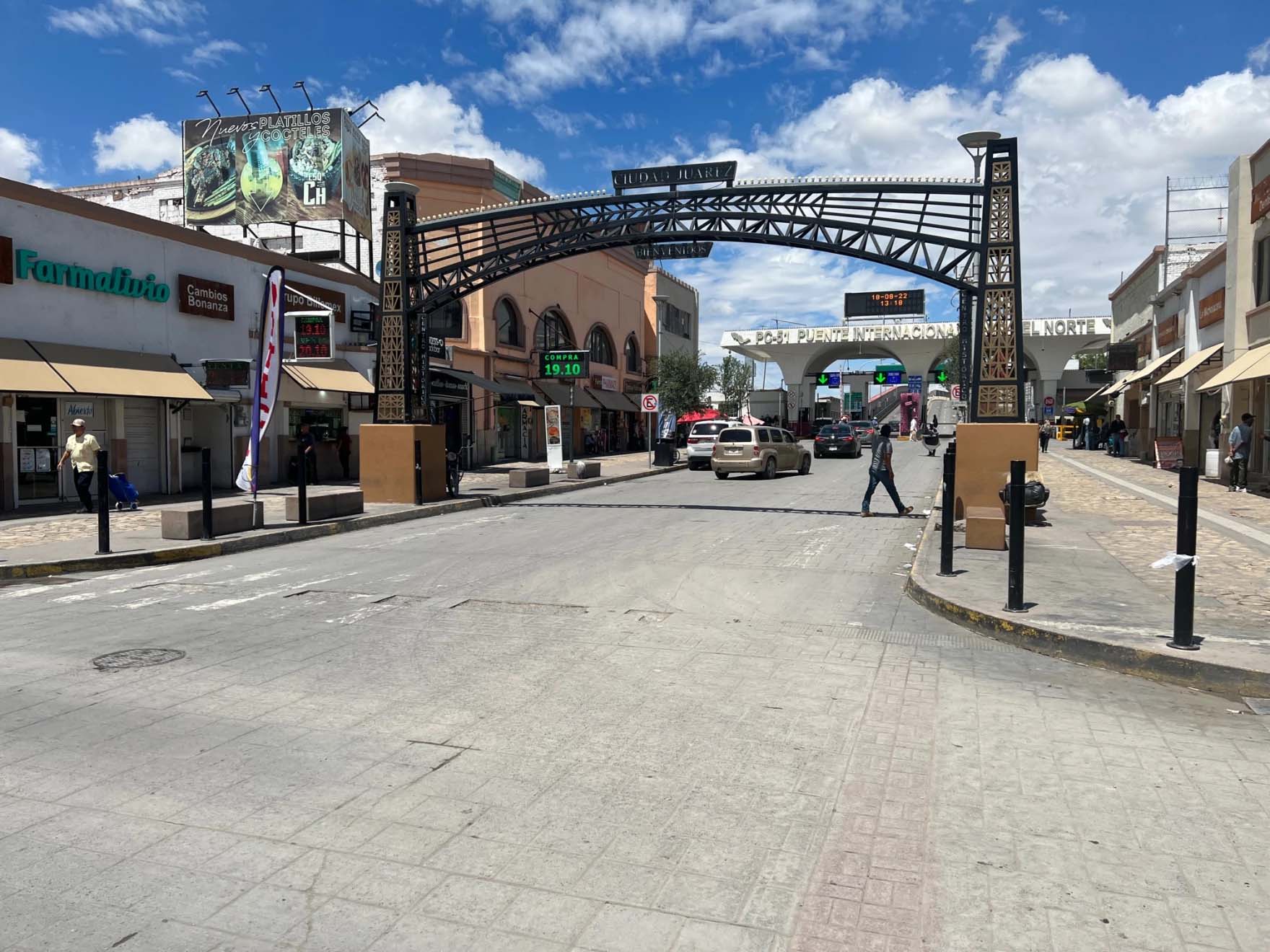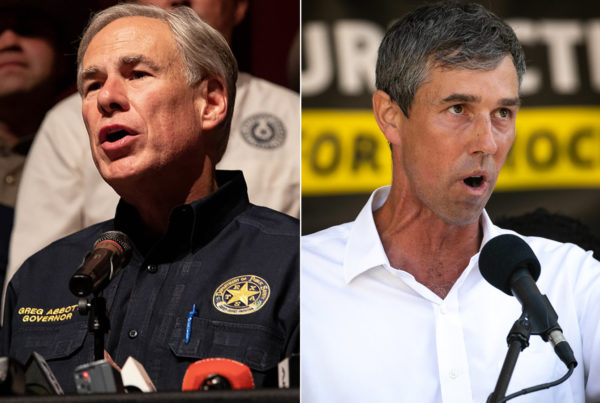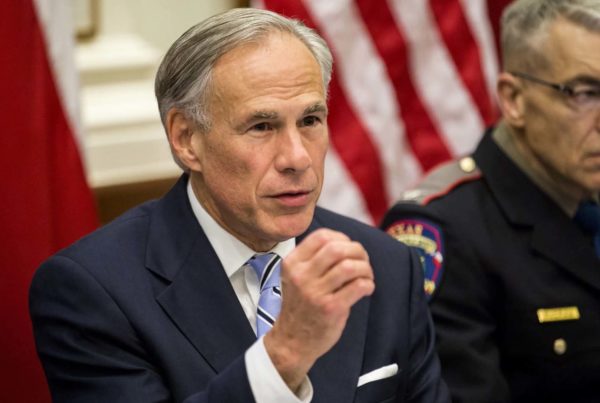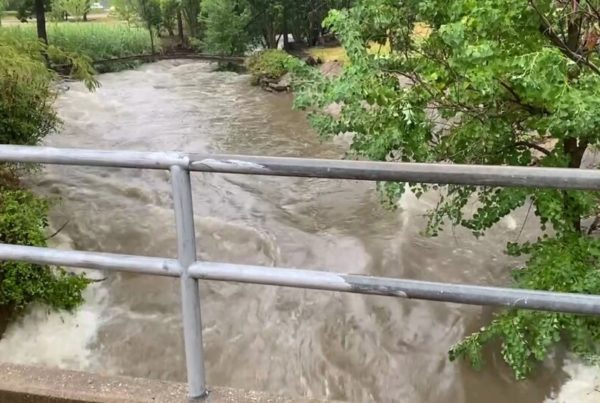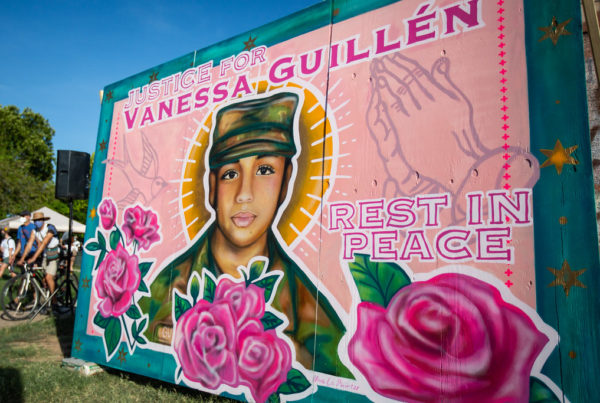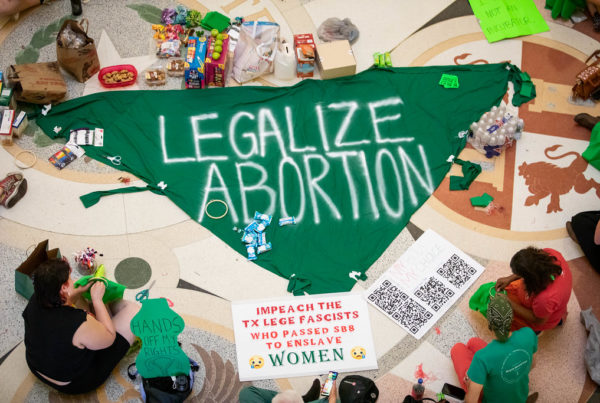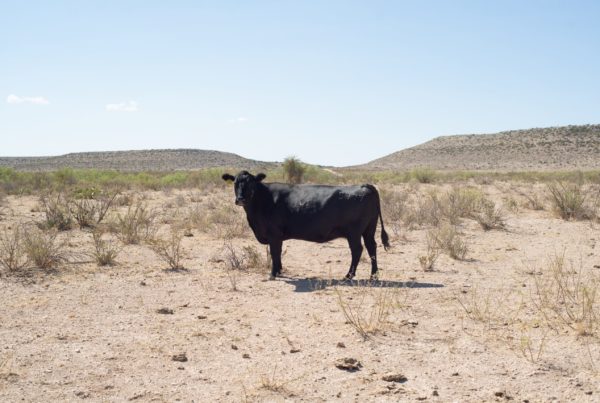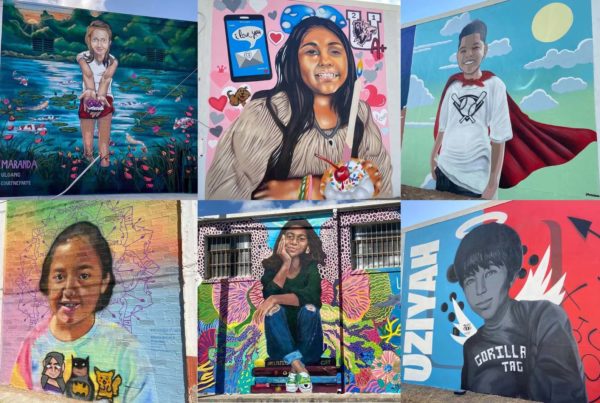From KTEP:
CIUDAD JUÁREZ – A tense calm has settled over this border city more than a week after 11 people were killed in a deadly rampage. Additional troops patrol Ciudad Juárez and other regions of Mexico where cartel gangs burned vehicles, torched convenience stores, and opened fire on public streets.
In Ciudad Juárez, the bloodshed on Aug. 11, dubbed “Black Thursday” by local residents, forced businesses to shut down that weekend.
“We closed Friday, Saturday, and Sunday,” said Teodoro Morales, a bartender at Kentucky Club.
The bar is open again but by Thursday afternoon, a full week after the attack, the bar was empty, except for a man nursing a beer. The historic bar, located just half a block from the international bridge, opened its doors in 1920 and is popular with customers from both sides of the border.
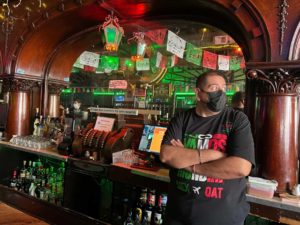
Kentucky Club Bartender Teodoro Morales hopes customers will return to the historic bar. People stayed home and off he streets after a deadly wave of violence August 11th locals called “black Thursday.” Photo by Angela Kocherga / KTEP News
“Let’s hope the people will come,” Morales said.
Half a dozen waiters stood around chatting. Normally they’d be busy serving quesadillas, burritos and flautas. Morales would be mixing up the bar’s famous margaritas.
Other businesses on Avenida Juárez that cater to visitors from El Paso were also eerily quiet. The street lined with restaurants, pharmacies and shops is usually bustling with activity, music blaring from storefronts. But after the violence many customers stayed away.
“If this situation continues it will be pretty bad for everybody here. I hope it doesn’t happen anymore,” said Arturo de la Garza, owner of a money exchange house on Avenida Juarez.
This border city has seen its share of bloody cartel turf battles that have claimed bystanders, but this time was different. The violence was indiscriminate.
During the rampage, everyday citizens were victims. Among those killed: a 12-year-old boy, a pregnant woman and four radio station employees at a promotional event for a pizza parlor.
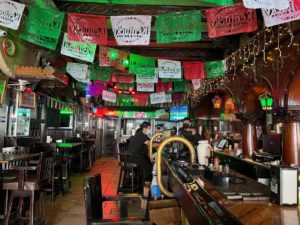
The historic Kentucky Club bar was empty a week after violence forced many businesses to close for a few days. Photo by Angela Kocherga / KTEP News
“Everybody is at risk, everybody. Nobody is safe,” said de la Garza.
That same week, criminal gangs also carried out mayhem in the border cities of Tijuana and the states of Jalisco and Guanajuato. Similar attacks were launched in Colima.
“That’s terrorism. That’s criminal terrorism,” said Tony Payan, director of the Center for the United States and Mexico at Rice University’s Baker Institute for Public Policy.
Organized crime groups have free reign because Mexico’s President Andrés Manuel López Obrador has failed to respond effectively, said Payan, pointing to what he described as an olive branch to cartels with his “hugs not bullets” strategy to reduce violence.
“This is exactly the kind of thing that the president promised that his strategy would prevent and here we are facing the same or worst kind of violence,” Payan said.
The U.S. State Department in an updated travel advisory for Mexico issued Aug. 17 warned Americans “do not travel” to six states, including Tamaulipas, bordering Texas. Additionally, U.S. citizens are advised to “reconsider travel” to another seven states, including the border states of Chihuahua across from Texas and Baja California on the west coast.
U.S. Ambassador to Mexico Ken Salazar issued a statement following the State Department’s heightened security advisory.
“Without security, there is no prosperity,” Salazar said. “It is important to reaffirm our commitment to citizen safety by providing training and resources to Mexican justice and security institutions and deepening our cooperation.”
During a press briefing in the U.S. Embassy in Mexico City last Thursday Salazar said, “What we need now are results.” He cautioned the security issues can have a chilling effect on private foreign investment in Mexico.
Last Friday, López Obrador visited the border city Tijuana and during a press conference, surrounded by military personnel. He was greeted by protestors demanding more security. AMLO, as he’s known by his initials, called the violence in Tijuana “regrettable” and pledged his support for the governor of Baja California.
The latest wave of violence has forced border residents to live with the new threat of indiscriminate attacks. Reyna Camarena and her mother spent a few hours in Juárez on Thursday before heading home to El Paso.
“You have to be careful, always,” Camarena, 53, said. “But life has to continue.”
KTEP newscast producer Aaron Montes contributed to this report.


